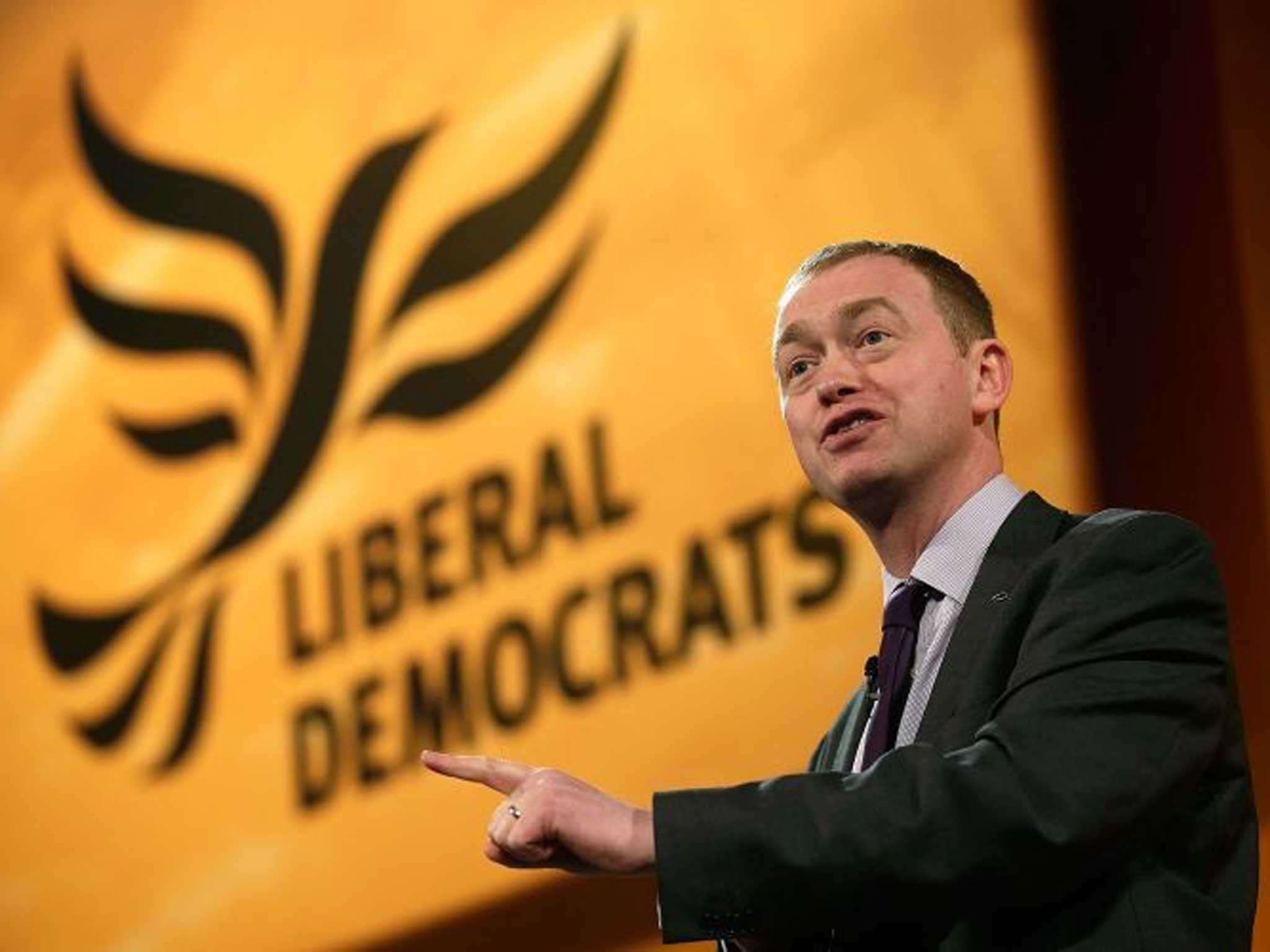Nick Clegg's rivals for the Lib Dems leadership told to rev up
After another dreadful week for the party, contenders for the throne are urged to pick their campaign teams, or risk losing their chance

The strongest contenders to succeed Nick Clegg as leader of the Liberal Democrats have been warned to start forming their campaign teams or risk losing the crown to party president Tim Farron by default.
Senior MPs and peers said this weekend that Lib Dem Cabinet members Ed Davey, Danny Alexander, and Alistair Carmichael should be preparing themselves in the event of a vacancy after next year's general election.
The warning came after Lib Dems endured another dreadful week that has damaged Mr Clegg's leadership. The party lost its deposit with less than 5 per cent of the vote at the Wythenshawe by-election, and party donors Sudhir and Bhanu Choudhrie were arrested as part of a Serious Fraud Office corruption investigation focused on the manufacturer Rolls-Royce. The pair deny any wrongdoing.
Mr Farron is untouched by the Lib Dems' bruising experience in coalition government, as he has not served as a minister. This would help his future leadership chances among the disenchanted grassroots of the party, while sources suggested that Mr Farron has already developed a core of 12 to 14 faithful supporters who could manage any future campaign push.
One long-serving MP said that should the Lib Dems' general election result prove as disastrous as current forecasts suggest, Mr Farron would have built up a huge advantage over potential rivals. These could also include International Development minister Lynne Featherstone, but, like the other six female Lib Dem MPs, she faces a struggle to hold on to her seat.
"People are beginning to say that the contenders need to start their preparations," said a party source. "There's been the odd observation on this made in the bars and tea rooms of Parliament. Davey, Carmichael, Alexander and Featherstone are all inside Clegg's government circle, so there's a real risk if they do anything overt. Farron is an outsider with a reasonably prickly relationship with Clegg so has more freedom and space.
"But with one member, one vote you would want to have a mechanism to reach members and prepare a ground operation, not leave it until the campaign itself starts. There's an awful lot of ground to make up on Farron, who's had a network in place for years."
A source close to one of the potential contenders admitted that they had been warned several times that preparations must begin, but said they remained a "Clegg loyalist". Former leaders Paddy Ashdown and Charles Kennedy, as well as Mr Clegg, all had strong campaign architecture in place a long time before their predecessors quit.
A prominent Lib Dem member of the House of Lords said that there was "incredulity" at senior party levels that Mr Farron could seize the leadership. The party president is not thought to be particularly popular among his fellow MPs, but is considered to be the standard-bearer for the left of the party that struggles to comprehend how the Lib Dems could possibly be in partnership with the Conservatives.
Mr Farron, who is the MP for Westmorland and Lonsdale in Cumbria, admitted after the Lib Dems' humiliating result at Wythenshawe that the party's recent electoral performance was "patchy".
However, he has been supportive of the tough line that Mr Clegg has taken on the Lord Rennard scandal, which saw the peer lose the party whip after an investigation into claims of sexual misconduct that, in fact, effectively cleared him.
After a tremendous furore last month, which saw Lord Rennard refuse to apologise for events he says did not happen and then threaten legal action if he was stripped of party membership, a mediation process is under way. The party is hoping that the women who have made the allegations and Lord Rennard can resolve the situation between themselves.
The party would certainly benefit from any rehabilitation of Lord Rennard, who is considered one of the best electoral strategists of any British party over the past quarter century. The Liberal Democrat party is already criticised for having just seven women MPs out of 56, and there are certain electoral scenarios, that could see this number dwindle to one or two.
There are signs that Danny Alexander, the powerful chief secretary to the Treasury and one of the coalition's chief architects, is positioning himself as Mr Clegg's natural successor.
The Inverness, Nairn, Badenoch & Strathspey MP has strengthened his team with the appointments of Peter Carroll, the founder of the successful Fair Fuel campaign, and Scottish Lib Dems communications guru Graeme Littlejohn.
Mr Alexander has also challenged Scotland First Minister Alex Salmond to a debate over independence "any time, any place, anywhere", suggesting a growing self-confidence. Another possible future leader, Mr Carmichael, is the Scottish secretary.
But many senior Lib Dems are hoping to persuade Energy Secretary Mr Davey to run. A House of Lords source said that the Kingston and Surbiton MP was "enormously admired for his intellect and political deftness".
The Lib Dems are bracing themselves for one more possible scandal. Jeremy Thorpe, the 1970s Liberal leader who was acquitted of conspiracy to murder in the decade's greatest political scandal in 1979, is still alive but increasingly suffering from advanced Parkinson's disease.
Upon Mr Thorpe's death, a book that is said to expose new details of the scandal will be published, which Lib Dems fear could be tremendously damaging to the party.
Join our commenting forum
Join thought-provoking conversations, follow other Independent readers and see their replies
Comments
Bookmark popover
Removed from bookmarks